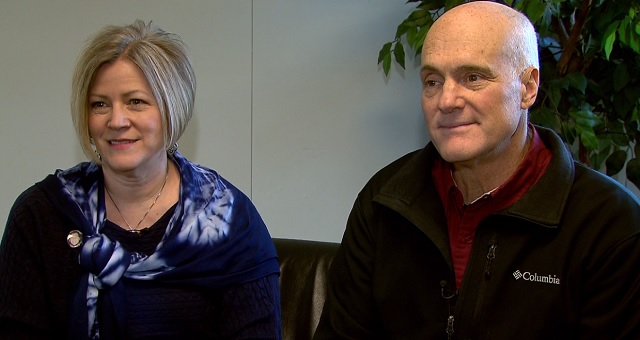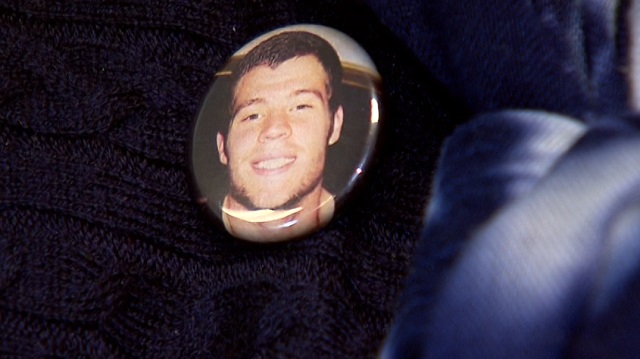PORTLAND, Ore. (KOIN) — Taylor Martinek played football at Portland State University. But after several shoulder surgeries, he became addicted to Oxycontin.
For years, Taylor struggled with his addiction before he overdosed in 2017 on pills laced with fentanyl. He was 24.
Investigators identified 3 different dealers in Taylor’s case, but none of them were sentenced to more than 28 months in prison.

Because of this his parents, Brian and Brenda Martinek, are now leading the charge for harsher penalties in drug-related convictions.
“Currently in the state of Oregon there is no avenue for holding someone accountable for homicide that is caused by selling drugs to somebody else,” Brian told KOIN 6 News.
“I don’t want another mom to lose her baby. I don’t want anyone else to lose their baby,” Brenda said. “The only way we can do that is to make sure we are stopping drug dealers in their tracks who are profiting from my son’s death.”
Their bill, House Bill 2797 — also known as Taylor’s Law — would allow for harsher penalties in prosecuting people convicted of selling drugs that result in death. They hope it would serve as a deterrent for selling deadly opiates — and would help save lives.
Read the entire House Bill 2797 at the bottom of this article
“Part of what’s happened in our walk from the death of our son is we’ve met many, many other families, unfortunately, that have lost their family members and children and we’ve realized we’re not alone, unfortunately,” Brian said. “It’s not a club anybody wants to be in.”
Brian is currently the executive director with NorthWest Regional Re-Entry Center and has spent the past quarter-century in various aspects of law enforcement with the Portland Police Bureau, the Vancouver Police Department and the Multnomah County Sheriff’s Office.
But even with that background, he said jail isn’t helpful to people who are struggling with an addiction.
“What I learned is what people need to learn, is that addiction is a disease, it’s a mental health disorder,” he said. “Nobody wants to be addicted. It’s a disabling disease that affects the mind of the people that have it. And they need help.”

Brenda said she and her husband experienced “roadblock after roadblock of even getting Taylor into a bed,” and said the only option for some people with addictions is to go to jail.
Taylor went to a private high school, then on to college and had a supportive family, Brian said. But “we’re concerned for people, especially, who don’t have access to things that we do, how hard it must be for them.”
“Drug addiction knows no boundaries,” Brenda said. “Children and adults who have affluence and children and adults who are struggling to make ends meet, who are discriminated against.”
The Martineks are working to pass Taylor’s Law for “all the other families who have lost children, who have lost their husbands, wives, friends, brothers, sisters,” she said.
She wants to make sure the drug dealer profiting “are put away somewhere so that other people’s children, moms and dads, can get help. No mom should have to plan for their own child’s funeral.”
The bill will have its first hearing before the House Judiciary Committee next week.
And they’re doing this through inspiration their son gave them.
“Taylor had a tattoo that said, ‘Fall 7 times, get up 8.’ That was Taylor,” Brenda Martinek said. “Taylor was always getting back up and fighting the good fight, he was a fighter. And for us, that’s one way we can live out Taylor’s legacy. We’ve fallen and we’re getting back up. We’re trying to help the next set of Taylor’s parents.”